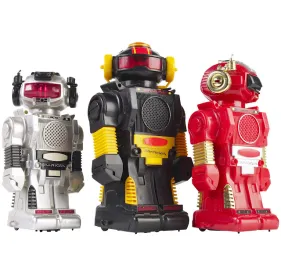Automation can perform both routine physical activities as well as cognitive capabilities. This capability development has made policymakers and the public nervous about the impact on workers and their wages. In Ted Claypoole’s post Stacking The Deck For Workers Over Machines, he acknowledges that there is a partisan divide on the direction of finger pointing pertaining to the reduction of certain jobs in our economy. In this analysis, Ted is 100% correct. President Obama set up this contrast at his DNC convention speech in 2016 and in his farewell address in early 2017, saying “the next wave of economic dislocations won’t come from overseas; it will come from the relentless pace of automation that makes a lot of good, middle-class jobs obsolete.” President Trump tends to blame (inaccurately) trade, offshoring and immigration.
Economists have studied the impact of automation on jobs, and have found there to be a legitimate concern. These studies show that every occupation has partial automation potential, as a proportion of its activities could be automated. They estimate that about half of all the activities people are paid to do in the world’s workforce could potentially be automated by adapting currently demonstrated technologies.
The politics of automation itself is not as straightforward as Ted claims and does not fit neatly into some ideological checkbox where progressives immediately call for a new government agency or tax and spend with immunity. President Obama’s chief economic adviser has written that his biggest worry about artificial intelligence (AI) is “that we do not have enough of [it].” In a 2016, the Obama Administration even proposed significant public investment in AI research and development. The Obama Administration felt it was critical to support technological advances but mitigate the potential workforce impact through the development of a diverse workforce that supports the technology.
Enter Bill de Blasio. In his quixotic bid for president, the mayor of New York City attempted to become a part of this conversation by proposing a “robot tax.” In essence, this proposal would tax entities that use automation to replace human jobs. President Obama proposed that we refashion our education system to ensure that students are college and career-ready in math, reading, computer, science, and critical thinking. In their view, the aforementioned skills would help the United States navigate through unpredictable changes in the labor market. Mayor de Blasio views automation as a force to be slowed down.
These sorts of changes are inevitable, and punishing entities for moving to that change is a 2019 solution to a problem that will outlive most of us. In recent decades laptops and smart phones have gone from luxuries to necessities, with relative costs going down as supply met this demand. As time goes on – automation technology and AI will improve and becomes less expensive. Any tax will become mere allocated expenses without an actual impact or deterring impact.
Ted tells us that Mayor de Blasio is participating in the art of good politics despite it being bad policy. I think Mayor de Blasio displays some courage in proposing an ineffective policy and with bad/negligible politics. Ted points us to the perception that Donald Trump, as a candidate, was perceived as being more focused on jobs. While I would argue against that proposition, the suggestion merits some consideration. The jobs he proposed to bring back were not supported with policies, suggestions, and financing mechanisms.
Our politics are definitely changing. There was a time that increasing taxes and or asking consumers to bear costs or feel some impact was politically toxic. Donald Trump was able to avoid this problem by merely making assertions as opposed to proposals (e.g. “I will bring manufacturing jobs back”). Some voters seem to be embracing the notion that larger entities or wealthier citizens are in better position to bear the burdens of paying for social advancement or social programs.
What Mayor de Blasio does, however, is not a proposal for social programs but a mere means of penalizing entities that are investing in advanced technology. Consumers favor less friction with their technology, and the government receiving more money is no consolation for their jobs being replaced.
Ted asks readers whether the robot tax proposal is:
Good Politics
Good Policy
Neither
Both?
He chose “Good Politics.” I think the correct answer is ‘Neither.”



 />i
/>i

